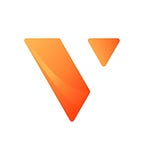What’s ahead for decentralized databases?
It’s easy to miss but when you think about it, many systems in our daily lives are in fact built upon databases — emails, bank accounts, music streaming sites — you name it. All of them are in one way or another linked to a database or, multiple databases.
In the simplest form, a database is an organized compilation of data, usually stored and accessed through a computer system. And just like every piece of technology that’s ever been created, “database” has grown and evolved since the concept’s debut in the mid-1960s.
According to a report published by Orian Research, the cloud database market accounted for $6.12 billion in 2018 and is expected to reach $495.26 billion by 2026, with a staggering CAGR of 62.9%.
It is no doubt that the database market is continuing to expand rapidly. But what’s also growing is the cost associated with data breaches — a study conducted by IBM shows that the global average cost for a data breach was $3.86 million in 2018, which is a 6.4% growth from the year before.
Because of this, corporations are becoming more aware of the security and resilience of databases. And this is where blockchain and decentralized databases step in.
Decentralized databases outperform traditional databases
Since the creation of blockchain, many have noticed its massive potential in building a highly secure distributed ledger, in contrast to the traditional centralized databases which are prone to attack.
This is achieved through the core innovation of blockchain — its consensus mechanism. Through the unique algorithm, every node (or sufficient nodes in certain blockchains) is required to validate and confirm a transaction before it’s permanently recorded in the blockchain.
While a traditional database is centrally controlled and administered, a blockchain database gives a rule-based distributed collaboration between various parties (the rule is put in place by the algorithm design). By eliminating a single point of failure, the level of security, as well as the sustainability and stability, are greatly improved.
We are now witnessing a market shift from relational databases to decentralized databases. Cloud-based non-SQL databases have been on the rise over the past decade.
Moving from Bitcoin Blockchain to a more scalable, secure, and stable environment
With all the advantages of decentralized databases and blockchain, one might naturally wonder why we don’t just go for using the Bitcoin Blockchain to build databases. But in reality, the Bitcoin Blockchain was never intended for general database usage. It highly discourages data storage with a limit of only 100 bytes per transaction, and it is also not equipped with native data modeling of objects. What’s more, a single blockchain will never be unable to provide an isolation system or resource between applications.
This is why developers around the world have been in search of a blockchain that’s scalable enough to support a wide scale of implementation, all while bearing a superior level of security and stability. While there is still no such thing as a “perfect” blockchain, it is safe to say that the effort does not go in vain. Major improvements to blockchain have been made since the invention of Bitcoin, for instance, the groundbreaking creation of Proof of Stake by Sunny King in the Peercoin project, which effectively eliminated the energy constraint for scaling a blockchain.
V SYSTEMS promotes a swift migration to decentralized databases
Despite many projects wishing to jump on the bandwagon of decentralized databases, many blockchains available in the market now are only focusing on technological advancements, and neglecting the actual commercialization aspect. At V SYSTEMS, however, we are thinking from a developer’s perspective — how could we make the migration from a traditional database to a decentralized database easier?
We are bringing a data migration tool that allows a large number of developers to swiftly migrate to a decentralized environment. Our databases will utilize JSON file format and a key-value pair representation system, making it easy to handle a gigantic flow of data. The associated cost will be far lower than the traditionally deployed RDS and NoSQL databases, thus reducing the cost barrier for developers.
All our technology specifications are designed from a user perspective, making sure that blockchain is actually adopted without staying on a theoretical level. Visit our whitepapers or get in touch should you wish to learn more.
